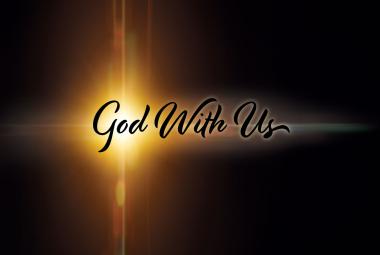In September, we began a new series of articles on the precious subject of “hope”—what it is, why it’s so important and how, even as believers, we can lose hope. Hebrews 6:18–19 validates the importance of hope by saying that it is the “anchor” of our soul when everything else around us is crashing and burning. Hebrews encourages us to “lay hold of the hope that is set before us,” as it is the only way we might have strong consolation and refuge in our difficult times.
The question in all of our minds, however, is: How do we do that? When our lives are falling apart, how do we lay hold of the hope that is set before us? When we pray but don’t seem to get any answers, how do we have the kind of hope that Hebrews is talking about?
This is the challenge that God has allowed me to face over the last year and a half as I battle mucosal melanoma cancer. When the doctors tell you there is nothing more they can do to help you, how do you have “hope against hope”? That’s what this series of articles on “hope” will try to answer.
Last month, I shared some of the details as to how I got sick, some of the difficult things I had to endure and how hopeless, at times, I became. Hopelessness occurs when you pray and you pray and you pray and yet everything continues to turn out against you. I got to the point where I didn’t even know how to pray anymore. I expected so many miracles and so many good things to happen during my ordeal that I was extremely disappointed when they not only didn’t occur as I had hoped, but even got worse.
My own expectations of what God was going to do and my own presumptions of how He would do it, prevented me from actually seeing the Lord in the middle of the crisis and from really hearing His Word. Expectations and presumptions are not necessarily sin, but because I held on to them and didn’t recognize the damage they were doing, it led to doubt and unbelief, which is sin. As Scripture says,
…whatsoever is not of faith is sin.
— Romans 14:23 KJV
So the first lesson God began to teach me was how to acknowledge and confess my own unmet expectations and presumptions and become a cleansed vessel. That’s what then freed the Lord to hear my prayers, to act on my behalf and to show me His Hand in the crisis. Seeing Him in the darkness is what began to give me the strength to endure.
Scripture tells us that the only way Moses endured his trials was by daily “seeing the Lord in the midst of the fire.”
The “Valley of Baca”
About six months before my cancer scare, a puzzling incident occurred. Chuck and I had just given an Agape Weekend conference in New Zealand and all the participants were standing around saying their good-byes. One of the precious men who had attended the conference with his wife came up to me and said, “In the future, this may help you. This may be what you will be looking for.” Then he said, “It’s Psalm 84.” Now, bear in mind, this man had absolutely no knowledge of the book that I was attempting to write on hope, nor could he know about the medical situation that would shortly arise and consume my life. Now, in looking back, this Scripture absolutely blows me away:
Psalm 84:5–7 states: “Blessed is the man whose strength is in Thee; in whose heart are the ways of them. Who passing through the valley of Baca [“valley of tears”] make it a well; the rain also filleth the pools. They go from strength to strength, every one of them…”
The “Valley of Baca” was an actual place in Israel. It was an arid stretch of land that the believing pilgrims had to pass through on their way to worshiping the Lord at the temple in Jerusalem. This is an important fact to remember—before the pilgrims could worship in the temple, they had to traverse the Valley of Baca. The Valley of Baca is equal to the desert of Sinai on the way to the “promised land” and was known for its difficult terrain.[1] (Note especially verse 5 that tells us that these were definitely “believers.” One commentary even said that verses 4 and 5 refer to “those who set their hearts on the high road.” (I, of course, loved that because the King’s High Way is the name of our ministry.[2])
These believers obviously experienced much weeping as they passed through this barren land. The Valley of Baca was known for its darkness and its black shadows. It reminds me of Job’s comments in Job 3:5 where he refers to the “blackness of the day,” “thick darkness” and the night as “barren, where no shout of joy can be heard.”[3]
The point of Psalm 84:5–6 is that even though these “believers” experienced the darkness and confusion of the Valley of Weeping, they were able to turn it around and “make a well.” In other words, they knew how to trust the Lord in the midst of the darkness and let the whole experience make them stronger. These pilgrims made this valley, this gorge, this canyon, into a valley of praise and a well of water. It says they went from strength (in the Lord) to more strength (in the Lord).[4]
As a side note: Going “from strength to strength” means becoming an overcomer. It’s the Old Testament word gibbor, which means putting off the old clothes and putting on the new. Isaiah 40:31 says: “those who wait upon the Lord [those who see the Lord in the midst of their difficult circumstances] will renew their strength.” This is exactly what is happening here. These believers are given supernatural “strength” in order to overcome and make it through their ordeal.
Scripture tells us that the only way our strength can be made perfect, or complete, is when we are emptied of self and filled with the Lord. In other words, only in our weaknesses (our emptiness) can we become strong in Him.[5]
But here’s the best part. “Strength to strength” in the Psalm 84 passage actually means to put on a new set of clothes. Yes, it means “a change of clothes.” But remember, in order to put on new clothes, we must first put off our old ones, and that’s the difficult part.[6] Unfortunately, this doesn’t happen automatically. I so wish it did!
The bottom line is: the place that God answers our prayers and the place where He finally turns our darkness into light, our trials into blessings and our confusion into understanding is our own Valley of Baca. This is the time that we finally relinquish total control of our lives over to Him, in spite of the darkness, in spite of the confusion and in spite of our circumstances. That’s when He will turn “our” strength into “His” strength. That’s when He will use every bit of our trial for His glory. And that’s when He will give us the supernatural ability to overcome and to carry on.
Another side note: I want you to be aware of the number of times that David refers in Psalm 84 to the Temple of God. I just want you to be aware of a very important connection between the Temple of God and the Valley of Baca, which hopefully you will see later in these articles. First, the “man who dwells in the house of God” (v.4); next, the “man who longs for the Courts of the Lord” (v.1); and finally, the “man who would rather be a doorkeeper in the house of God” (v.10, “where a day in His court is better than a thousand” that dwell in the world, with all its riches). All these references to God’s House in Psalm 84 are significant, not only because they refer to the Lord in His temple, but also because they refer to weeping, darkness and clouds on the way to worshiping in His Temple.
Could this be the pattern God has designed for our own lives?
The “Shadow of Death”
The Valley of Baca refers to a time of weeping and tears, so it could also be called “the Valley of the Shadow of Death.” Psalm 23:4 says: “Yea, though I walk through the valley of the shadow of death, I will fear no evil; for Thou art with me; Thy rod and Thy staff they comfort me.”
In Scripture, “rod” means God’s Word.[7] It’s an instrument that corrects. And “staff” means His Spirit of support and comfort.[8] It’s an instrument of guidance. Notice here that even though this believer walks through the hardest times of his life (the Shadow of Death), he still knows that God is with Him and that His rod and staff comfort him.
The “Secret Place of Thunder”
This difficult period of time can also be known as “the secret place of thunder,” the place where Scripture says that “God tests us.” Psalm 81:7 speaks of how Moses was tested at the waters of Meribah, called the “secret place of thunder.” This is referring to the incident in Exodus 17:1–8 where the Israelites doubted and murmured against God, and thus the enemy got a foothold. When Moses held up his “rod,” the invasion stopped; but when he let the rod down, the enemy advanced. Note how the enemy gained entrance when Moses laid his rod down (symbolic of God’s Word), but how the enemy was held back when Moses held the rod high.
God is continually testing us to see if we really trust Him. As we mentioned last month, trust and hope are essentially the same thing. Do we still hope in God when He allows the unthinkable into our lives? Do we, like Moses, hold up the Word of God when the enemy advances, or do we, like I did, drop the Word and let the enemy in? Psalm 81 tells us that if we call on the Lord when we are in trouble, He will answer us in the secret place of thunder. This is the place He tests our faith.[9] So, in essence, He answers us by testing us! Wow!
Only when I began to honestly confess my doubts and “let go” of my own expectation of what God was going to do in my life, and instead “grab a hold” of the fact that God will be faithful to me no matter what happens, that I began to have some victory in my life—that I became an overcomer and that I went from strength in the Lord to more strength in the Lord.
Hebrews 11:27 again tells us that the only way Moses endured his trials and the darkness in his life, was by daily “seeing the Lord who is invisible” in the midst of the fire. He saw God’s faithfulness in the middle of his trials, which then gave him the hope to carry on.
Hope is what can turn the darkness into “a well of blessings.”
To be continued next month: Trusting God in the Darkness (Part Three). This article was taken, in part, from Nan’s new book Hope Against Hope.





